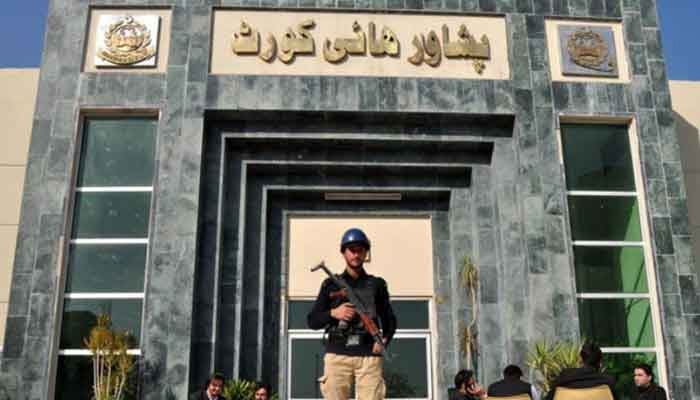PHC seeks responses from Pedo, Nepra, others
PESHAWAR: The Peshawar High Court (PHC) on Wednesday directed the Pakhtunkhwa Energy Development Organisation (Pedo), the federal government, the National Electric Power Regulatory Authority (Nepra) and other relevant authorities to submit their responses on a petition challenging restrictions on the wheeling system for the transmission of low-cost electricity in Khyber Pakhtunkhwa.
A two-member bench comprising Justice Sahibzada Asadullah and Justice Wiqar Ahmad heard the petition filed by the Khyber Pakhtunkhwa Textile Mills Association.
During the hearing, Shumail Ahmad Butt, counsel for the petitioners, informed the court that Khyber Pakhtunkhwa is a leading producer of electricity in Pakistan, particularly low-cost hydropower, generated at a cost of only Rs2-3 per unit. However, he argued that this electricity is being sold to mills at exorbitant rates of Rs60-70 per unit.
The counsel explained that the federal government had initially introduced a wheeling system to facilitate the transmission of electricity, allowing industries to receive power at lower costs. Under this system, hydropower units could transmit electricity directly to their affiliated industrial units, with payments made to both federal and provincial governments for transmission usage. However, the federal government later instructed all distribution companies (Discos) to halt the implementation of the wheeling system, citing potential operational concerns.
The counsel highlighted the severe impact of these restrictions on the textile sector, which is already facing significant challenges. He argued that the wheeling system would enable industrial units to access affordable electricity, leading to several benefits, including job creation, reduced costs and a potential solution to the national electricity shortage.
The counsel informed the court that Pedo had advertised the availability of electricity under the wheeling system, and all members of the Textile Mills Association had shown interest. However, he stressed that the initiative has been stalled due to resistance from the federal government and related Discos, which he deemed unjustified.
He further added that implementing the wheeling system would allow affiliated units to generate their own power, leading to job creation and cost reduction. After hearing the initial arguments, the court directed the relevant departments to submit their responses to the petition.
-
 Winter Olympics 2026: When & Where To Watch The Iconic Ice Dance ?
Winter Olympics 2026: When & Where To Watch The Iconic Ice Dance ? -
 Melissa Joan Hart Reflects On Social Challenges As A Child Actor
Melissa Joan Hart Reflects On Social Challenges As A Child Actor -
 'Gossip Girl' Star Reveals Why She'll Never Return To Acting
'Gossip Girl' Star Reveals Why She'll Never Return To Acting -
 Chicago Child, 8, Dead After 'months Of Abuse, Starvation', Two Arrested
Chicago Child, 8, Dead After 'months Of Abuse, Starvation', Two Arrested -
 Travis Kelce's True Feelings About Taylor Swift's Pal Ryan Reynolds Revealed
Travis Kelce's True Feelings About Taylor Swift's Pal Ryan Reynolds Revealed -
 Michael Keaton Recalls Working With Catherine O'Hara In 'Beetlejuice'
Michael Keaton Recalls Working With Catherine O'Hara In 'Beetlejuice' -
 King Charles, Princess Anne, Prince Edward Still Shield Andrew From Police
King Charles, Princess Anne, Prince Edward Still Shield Andrew From Police -
 Anthropic Targets OpenAI Ads With New Claude Homepage Messaging
Anthropic Targets OpenAI Ads With New Claude Homepage Messaging -
 US Set To Block Chinese Software From Smart And Connected Cars
US Set To Block Chinese Software From Smart And Connected Cars -
 Carmen Electra Says THIS Taught Her Romance
Carmen Electra Says THIS Taught Her Romance -
 Leonardo DiCaprio's Co-star Reflects On His Viral Moment At Golden Globes
Leonardo DiCaprio's Co-star Reflects On His Viral Moment At Golden Globes -
 SpaceX Pivots From Mars Plans To Prioritize 2027 Moon Landing
SpaceX Pivots From Mars Plans To Prioritize 2027 Moon Landing -
 J. Cole Brings Back Old-school CD Sales For 'The Fall-Off' Release
J. Cole Brings Back Old-school CD Sales For 'The Fall-Off' Release -
 King Charles Still Cares About Meghan Markle
King Charles Still Cares About Meghan Markle -
 GTA 6 Built By Hand, Street By Street, Rockstar Confirms Ahead Of Launch
GTA 6 Built By Hand, Street By Street, Rockstar Confirms Ahead Of Launch -
 Funeral Home Owner Sentenced To 40 Years For Selling Corpses, Faking Ashes
Funeral Home Owner Sentenced To 40 Years For Selling Corpses, Faking Ashes




